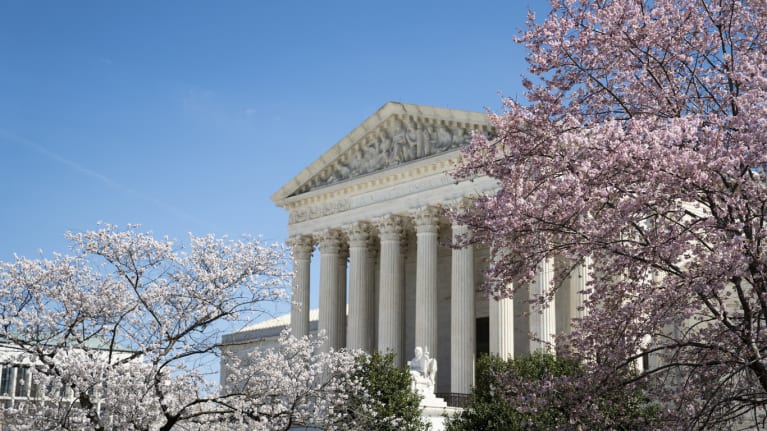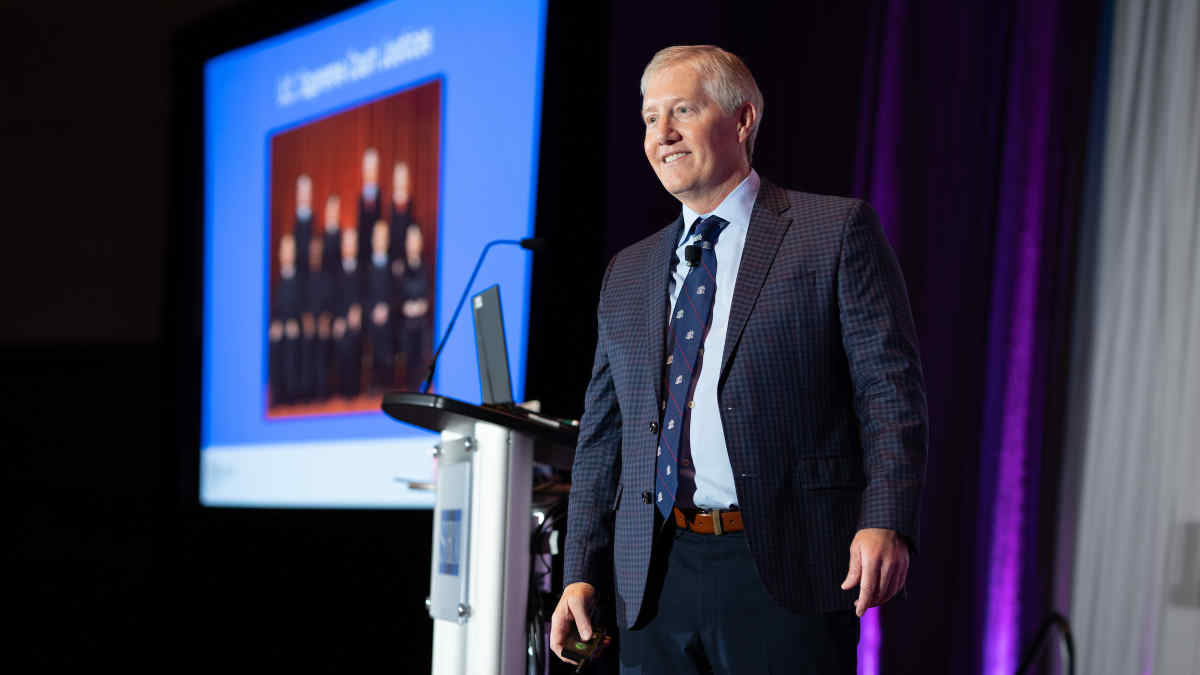

?The U.S. Supreme Court recently handed down some important decisions affecting employers in many ways, and there’s more to come. Arbitration has been a recurring theme lately.
Joseph Beachboard, an attorney with Ogletree Deakins in Los Angeles, gave an overview of recent Supreme Court cases and what’s likely to come up next in the court. He spoke at the SHRM Annual Conference & Expo 2022 in New Orleans and virtually on June 13.
“There have been some very important rulings for employers over the last two years,” he said. “There’s also a few important cases still pending before the court.”
All eyes have been on the anticipated overturning of Roe v. Wade, but there are other employment-related decisions to watch out for.
On June 15, the court decided Viking River Cruises v. Moriana, clarifying that employers can require employees to settle certain claims through arbitration.
California’s Private Attorneys General Act (PAGA) allows employees to sue on behalf of the state to recover penalties from employers for violations of California’s Labor Code. In this case, the company sought to compel arbitration of PAGA claims, based on an arbitration agreement. Lower courts found that the PAGA claims could proceed in court, and the company appealed to the Supreme Court.
In California, especially, “I do think arbitration agreements make a lot of sense,” Beachboard said. “They do save on costs. They do result in quicker decisions. I do think they’re fair …. If we can resolve cases and move on, that’s usually better for everybody. That’s my practical view on it.”
Public employers may be especially interested in Kennedy v. Bremerton School District, which the court is expected to rule on soon. The case will clarify whether a public school can prohibit an employee from saying a prayer while at school and visible to students. The question is whether that qualifies as protected religious expression or government speech that lacks First Amendment protection.
Other Recent Rulings
In the last two years, several employer-related cases were decided in the nation’s highest court—sometimes in favor of employers, but sometimes not.
In January, the court ruled in Hughes v. Northwestern University that employers must weed out retirement plan investment options that are too numerous, too expensive or underperforming. There’s now a “duty to protect your employees by monitoring and removing choices that have excessive fees or consistently underperform,” Beachboard said.
In a different case, Badgerow v. Waters, the Supreme Court ruled in March that the federal courts generally should not be involved in approving or rejecting arbitration damages.
Another ruling came on June 6, when the Supreme Court ruled in Southwest Airlines v. Saxon that employees cannot be forced to settle claims in arbitration if they are directly involved in interstate or international commerce. It held that the plaintiff did not have to arbitrate her wage claims because she sometimes loaded and unloaded cargo from airplanes, helping to transport goods across borders.
“The concern here is somewhat overstated,” Beachboard said. “The court’s ruling was quite narrow.” It does not apply to all airline workers.
Looking Ahead
Looking to the future, Beachboard expects to see the Supreme Court make significant judgements on these topics:
- Marijuana use by employees.
- Pay equity and pay transparency.
- COVID-19-related claims and accommodations.
“There is going to be a lot of litigation about COVID,” Beachboard said. “There really is a lot of that [that] employers just aren’t realizing is coming their way.”
About 6,000 COVID-19-related claims are moving through the U.S. Equal Employment Opportunity Commission right now, he estimated.
He acknowledged the increasing divisions in the country, especially over matters related to the Supreme Court.
“Over the last 30 years, I haven’t seen the kind of attention on the Supreme Court as we’re seeing now, and in my opinion, it’s not a good thing,” Beachboard said. “The emotional reaction that I see people have is not something I ever recall. The Supreme Court is politics now. The Supreme Court is emotion, and we’re divided.”
In recent years, two justices have died, and two retired, leading to significant changes in the makeup of the group of nine. Judge Ketanji Brown Jackson will soon be the latest to join the ranks of the justices.
